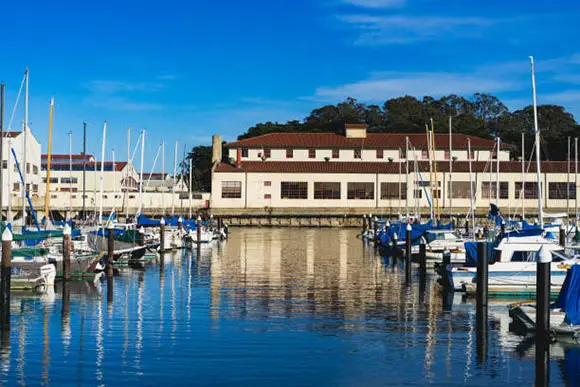Selling Waterfront Property in Cottage Country
Published on 12 May 2021, 01:45:46 AM
When it’s time to sell your waterfront property, be sure realtors and buyers know the pros and cons of getting a rural property mortgage or mortgage for land. It can save you from downstream legal problems if buyers insist they didn’t know what they were getting into buying your waterfront property.
Define Waterfront Property For Me
What realtors mean by waterfront property is any land on, overlooking, or with a view of a body of water. That means lake, ocean, sea, or canal. Waterfall, river, stream, or dam? It’s on the water!
Now let’s get down to the business of selling.

Transfer Building Permits for Waterfront Property
Property owners are responsible for building permits. Before you suggest a new owner can make changes to waterfront property, ensure permits are still valid. Buyers will need a permit when:
- building a new home in Ontario over 10 square metres or seasonal structures
- replace a structure
- renovate, repair or build onto a structure
- change a building’s use
- dig or build foundations
- and install, alter, extend or repair sewage systems.
Waterfront Property 101
How much does waterfront add to property value, and is waterfront land a good investment?
Every property is unique, but quite a bit when you can walk out your door and be immediately on a beach. Less if your waterfront property is on a bluff with beach access via a steep wooden staircase, and requires you to drive to stores and restaurants. Less yet for remote waterfront properties or islands that are water access only.
Regardless of your location, building on or near water calls for special measures. Ensure your realtor is experienced at selling waterfront property or brief them before signing the listing.
- Water and flood zone tables can make it advisable to put a home on stilts or move it away from the waterways.
- High water tables limit foundation options, like no basement.
- Storm shutters, protective finishes and sea spray-resistant hardware reduce storm wear and tear.
- Mould and mildew in wetlands eat away at structures.
Complete a seller property information sheet (SPIS) to avoid buyers complaining they weren’t fully informed about the challenges and conditions of buying waterfront property.

When Was Your Waterfront Property Surveyed?
Land surveys for remote or rural waterfront property can be few and far between. State on the SPIS when the last survey was done and whether your land encroaches on other property around it, has rights of way or is subject to a zoning application. Lots beside Crown land can be limited in what a new buyer can do. Tell your realtor if your land is on a wildlife pathway so buyers know to expect wild animals to wander onto the property — and there’s nothing they can do about it.
Get Copies of Restrictive Covenants or Zonings
Buyers may not realize recreational or seasonal zoning means waterfront property can only be used part of the year. Inform realtors if RV or resort lot use is restricted to 180 days a year or less. New owners need to know if it’s not an Airbnb investment or full-time retirement option.
Landslides, spring flooding or heavy snowfall can block access to land part of the year. Make sure your realtor tells buyers if roads aren’t cleared in winter or they have to ski in or use a boat to reach your lot.
Who Owns Water?
Do buyers really want to get up close and personal with swimmers, sunbathers, hikers or bird watchers?
Be honest if waterways, lakes and ponds or beaches are public, not private. You could own riparian rights for land that adjoins water, but not shore allowances along a roadway. Before they contemplate putting up a fence or building a deck over a lake, have their realtor recommend Axess Law for a title search.
And if your community is popular with day trippers, overcrowded on weekends or even a favourite ice fishing spot, be sure buyers know it. They could be trying to escape the big city and not at all pleased by all that noise.

Fishing and Docking Rights
Building a boat or fishing dock can cost thousands, if it’s allowed at all. Water tenures from federal or provincial governments that protect fish and wildlife — and municipal zoning bylaws for recreational properties — can restrict if a dock is allowed or how big it is.
Inform your realtor if you own or lease a dock and if it can be replaced or kept as is. Refer them to the Department of Fisheries and Oceans if you have oceanfront property.
Is the Water Potable?
You’re aware what condition drinking water and sewage systems are in can depend on how far away they are from contaminants. Bonus points if your lot is lucky enough to have municipal amenities.
Otherwise, be sure buyers know that small lots may be inadequate for a septic field and what other options are available. Document the last date of septic installations and pumping schedules. Include in your SPIS if tree roots or other damage requires costly repairs — you may have to reduce your asking price or offer to repair the damage to get a sale.
Pass on your contacts for accredited labs that can test well water flows or check for bacteria, ammonia, chemicals, metals or other organisms that make water unsafe to drink.
Getting Power to the Site
Your lot may have power on site already or be close to the road, allowing ready hookups. If you’ve researched the cost of installing a power pole or bringing power to outbuildings, give the realtor that information and what year you obtained quotes. Tell your realtor if you’ve explored green options like solar panels or a generator is needed. It all saves potential buyers time.
Whose Liability Is It?
PCBs, heavy metals from nearby foundries, arsenic in wells — who’s liable if waterfront property is contaminated or buildings are suffering from dry rot?
If you completed the SPIS and listed the property in “as is, where is” condition, you might escape liability. On the other hand, a court could assess a portion of liability to you, the municipality or industrial users.
Protect your financial interests by insisting buyers exercise due diligence before they complete the sale. After all, your goal is to sell and move on, not get pulled into court.
Where is the Cheapest Waterfront Property and the Best?
How much a waterfront property is depends on location, location, location. Cottages and lots closer to Toronto, Ottawa, or any city cost the most. Head north for the cheapest waterfront property. Where is the best place to buy waterfront property? SidmartionBio recommends heading for Bancroft, North Kawartha, North Frontenac, Haliburton, or Hastings. Algonquin Provincial Park, Oxbow Lake, or Golden Lake Park can be very charming on a hot summer night.
Why You Need a Lawyer
Axess Law closes waterfront property deals quickly and for low, flat rate fees, anywhere in Ontario. We have a mortgage lawyer near you who can offer sound legal advice on almost any property selling question.
When environmental assessments, well or septic inspections and foreshore allowances weigh in, call Axess Law to represent you in sale transactions. Our cheap real estate lawyers in Toronto area and Ottawa transfer titles to property, discharge mortgages and can search property titles for your new home or land. Named in a legal claim? We make referrals to trusted legal associates.
Call us for speedy service, online or in person.
Ask About Our Flat Fee Legal Services
Axess Law flat fee legal services can save you a bundle.
You pay only $799.99 and up to sell waterfront property. Use our online booking form — it’s quick and easy to make appointments for virtual video calls or to drop into our law offices (Toronto area or Ottawa). Dial toll-free to 1-877-402-4277 or call 1-647-479-0118 in Greater Toronto Area for day or evening appointments, 7 days a week.
Our mortgage refinance and land transfer lawyers video conference with you anywhere in Ontario, using secure, confidential virtual technology. We close your deal without leaving home or office or welcome your visit to any location.
Onsite parking and easy bus access are available.





